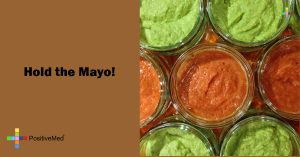
8 Things You Should Never Refrigerate
Refrigerators may seem as if they’re a safe haven for all things perishable, but did you know there are some foods that are better off being left out? It’s true! Brush up on your food storage know-how and vow to never throw these eight staples in the fridge again.

1. Honey
Honey has a naturally thick consistency, and keeping it in a cool fridge will only thicken it up even further. The low temperatures will cause it to crystallize, making it nearly impossible to squeeze out of that cute, bear-shaped bottle. Honey will keep indefinitely in your pantry, so feel free leave it “bee.”
2. Bread
Although bread has a relatively short shelf life, keeping it in the fridge won’t do much to help its longevity. Your bread will dry out quickly in the refrigerator, so it’s best to freeze what you know you won’t eat within five days. The freezer will help retain some of the moisture while the fridge does just the opposite.
3. Potatoes
Whether you intend to mash ‘em, bake ‘em, or fry ‘em, avoid keeping your spuds in the fridge. The moisture can trigger early decay, so it’s best to stow them away in a cool, dark and dry area. Wrap up the potatoes in a paper bag to increase their shelf life even further.
4. Onions
As long as they’re unpeeled, onions should stay out in the open to promote optimal airflow. If they’re peeled, a covered, airtight container in the fridge will keep them fresh. Be wary of keeping them anywhere near your potatoes, though – they produce moisture and gas that can cause your onions to rot more quickly.
5. Coffee
Coffee is known for its absorbent properties; so unless you want your morning cup of joe to have the essence of your peeled onions, keep it out of the fridge. Coffee grounds and beans are both best kept in a sealed container in the pantry. While the beans do make a nice ornamental display in your kitchen, the flavor will be compromised if they’re stored in glass containers on your countertop.
6. Melons
Stored in the refrigerator, melons lose much of their nutritional value. By leaving them at room temperature, you’ll be rewarding yourself with a host of beneficial antioxidants and nutrients. The melons will also decay more quickly in the refrigerator, so the benefit of keeping them on the counter is twofold.
7. Bananas
If you’re one of many people who enjoy the sweet, strong taste of a ripe banana, you’ll want to keep your next bunch out of the fridge. The cool temperatures will prevent your bananas from ripening, so they’ll just remain in their current state (this is especially bad news if they’re still green).
8. Oils
Oils are best kept in a cool, dry area. When stored in the fridge, they take on a hard, buttery consistency. They take a while to return to their original liquid form, so it’s best to keep them out of the fridge to ensure they’re always recipe-ready.





